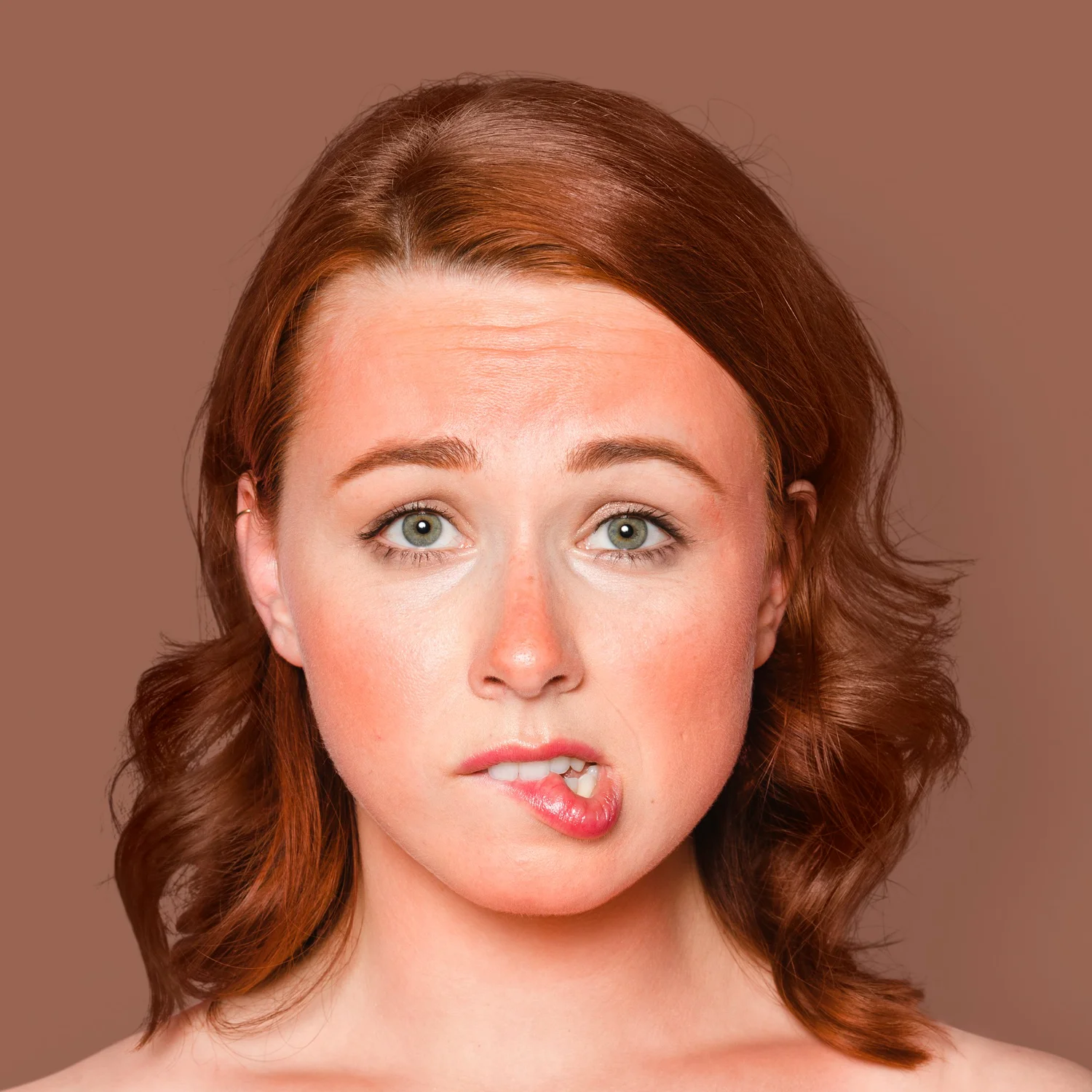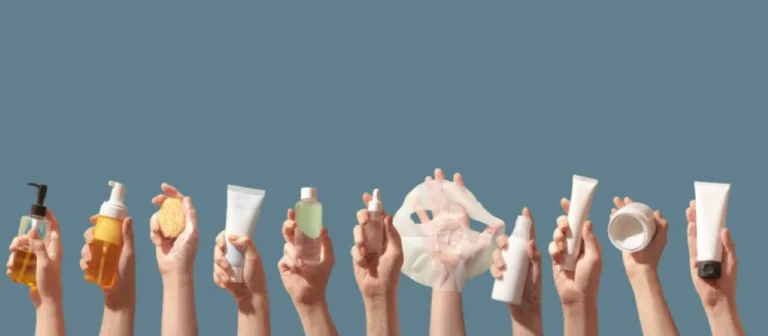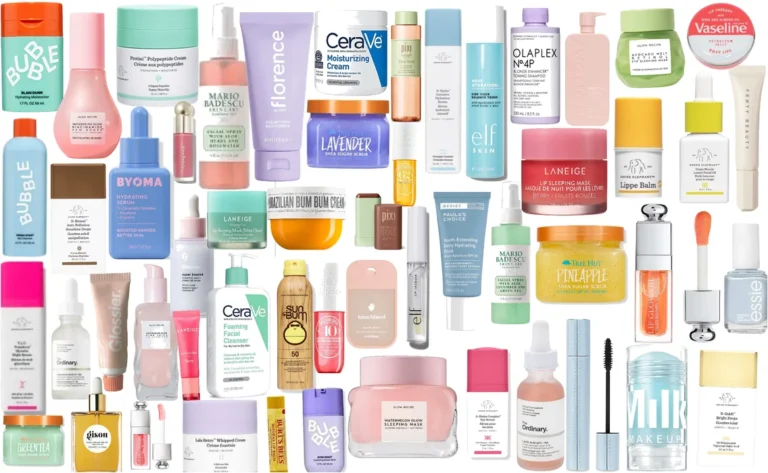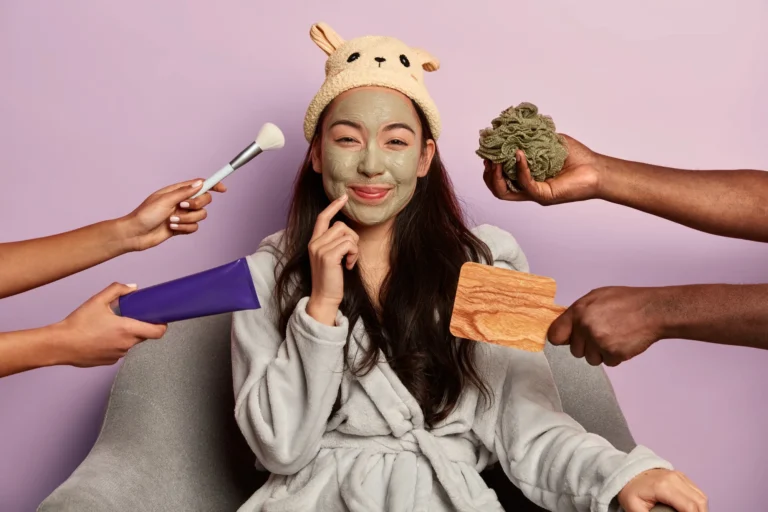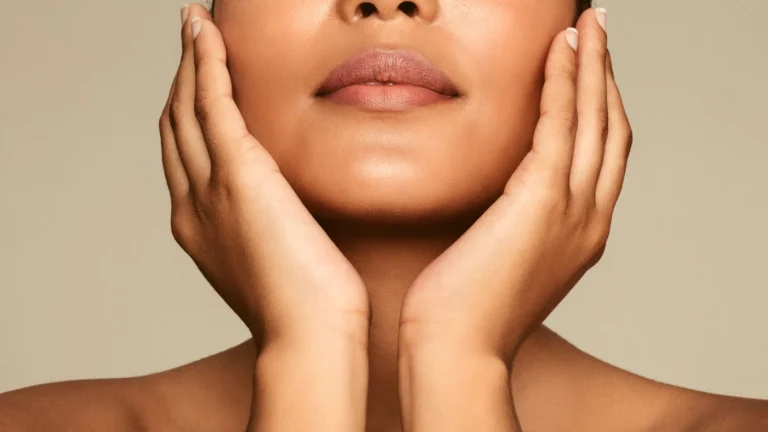Oops! Retinol Ruined My Skin: What Went Wrong?
Think of retinol as the superhero in your skincare routine, ready to save the day by battling wrinkles, fine lines, and acne like a true champion. It’s like having a trusty sidekick for your skin, helping you turn back time and say goodbye to those stubborn blemishes. But wait, there’s more! Retinol doesn’t just stop there; it’s also great for fading dark spots, improving overall skin texture, and boosting collagen production for a firmer, more youthful complexion. With retinol on your side, you can tackle multiple skincare concerns all at once, making it a must-have in any skincare arsenal.
Personal Experience
My Bad Experience with Retinol
Armed with a fresh bottle of retinol, I eagerly awaited its magic on my skin. However, the situation spiraled downward unexpectedly. Instead of the promised radiant glow, my skin reacted with redness, dryness, and flakiness, thanks to retinol’s unexpected side effects. It felt like my skin was rebelling, leaving me feeling frustrated and uncertain about how to proceed. As I searched for answers, I discovered that my experience was not uncommon. Many people encounter similar challenges when first introducing retinol into their skincare routine. This initial period, often referred to as the “retinol adjustment phase,” can be daunting but is typically temporary. With patience and the right approach, it’s possible to navigate through this rough patch and emerge with healthier, happier skin.
Symptoms and Effects
The Aftermath: Symptoms of Retinol Damage
Ever wondered what happens if retinol doesn’t play nice with your skin? Well, imagine your skin throwing a bit of a fit; it gets red, irritated, and drier than a desert. It’s not just a small problem; it’s a big skincare disaster.
There are a few reasons why retinol might cause these issues. It could be the wrong type for your skin or too strong of a concentration. Maybe you’re putting on too much or not using it correctly. Using it every night might be too often, and mixing in too many other active ingredients at the same time could also be a problem. Plus, forgetting to wear sunscreen or reacting to other ingredients in your product could be factors. Sometimes, just using too many products overall or other things like lifestyle and health can also play a role.
Severity and Duration
You may be asking yourself, “Just how dire could it possibly get? Well, let me tell you, when retinol doesn’t agree with your skin, it’s tough. You could be stuck dealing with weeks of irritated, flaky skin that feels rough like sandpaper. It’s not just a quick fix; it takes time to get your skin back to its smooth, silky self.
When retinol doesn’t sit well with your skin, it’s not something you can ignore. You might see redness, peeling, and sensitivity that stick around for days or even weeks. It’s like your skin is in full-on revolt mode, and calming it down isn’t easy. So, if you’re thinking about trying retinol, be ready for the possibility of a rough patch.
Causes of Damage
What Went Wrong?
Ever wondered what caused the trouble with my retinol? Well, it turns out there are a few possible reasons behind it. From using it the wrong way to having extra-sensitive skin, there are several factors to consider.
When it comes to using retinol, it’s crucial to follow the instructions carefully. Using too much or using it too often can make your skin irritated and dry. And if your skin is already sensitive, it might not react well to retinol. Also, using too many other products or forgetting to wear sunscreen can make things worse. So, if you’re having issues with retinol, take a closer look at your routine to see if any of these factors might be causing the problem.
Incorrect Usage
Oops! I may have gone overboard with my retinol use. Instead of easing into it like a skincare pro, I dove right in and slathered it on without a second thought. Well, my skin wasn’t too happy about my impulsive approach. It rebelled big time, leaving me to deal with the consequences of my rash decision. So, if you’ve ever felt like retinol ruined your skin, it might be worth checking if you’re using it correctly. Taking it slow and steady, using a pea-sized amount, and being mindful of potential side effects like initial acne flare-ups can save you from skincare woes.
- Start slowly: Gradually increase retinol concentration.
- Use sparingly: Only a pea-sized amount is needed.
- Beware of purging: It might cause initial acne flare-ups.
- Stick to gentle products: Opt for mild skincare options.
- Moisturize regularly: Combat any dryness with a hydrating moisturizer.
- Sun protection is key: Shield your skin from UV rays.
- Pause before procedures: Stop using retinol before any facial treatments.
- Avoid during pregnancy: Skip retinol if you’re pregnant or planning to be.
Sensitivity and Interactions
So, it turns out my skin is a bit sensitive—a detail I might have overlooked in my excitement to try retinol. When you add in the possibility of it mixing with other skincare products, it’s like a potential disaster waiting to happen.
If your skin is sensitive, using retinol without caution can be risky. It’s important to be aware of how your skin might react, especially when using strong ingredients like retinol. Plus, mixing retinol with other active skincare products could lead to unexpected reactions, making things even worse. So, if you’ve ever felt like “retinol ruined my skin,” it might be a good idea to take a step back and think about how your skin could respond to different products and ingredients. It could save you from future skincare troubles.
Common Mistakes to Avoid
So, what’s the lesson from my retinol experience? Well, it’s important to do your homework before trying out new skincare products. From testing products on a small spot first to carefully following the instructions, there are plenty of things to watch out for when dealing with retinol.
When you’re starting with retinol, it’s best to take it slow. Rushing into it without knowing all the details can lead to problems, leaving you feeling like “retinol ruined my skin.” By learning about retinol and how to use it properly, you can avoid potential issues and get better results. So, before you start using retinol, take some time to learn about it and how to use it safely. Your skin will thank you!
Recovery and Solutions
Soothing Your Skin
Now that we’ve covered what not to do, let’s talk about how to fix things up. If you’re dealing with skin issues because of retinol, don’t worry—there’s still hope for your skin.
If you’ve found yourself in a situation where “retinol ruined my skin,” don’t panic. There are steps you can take to soothe and heal your skin. First, consider taking a break from retinol to give your skin a chance to calm down. Focus on gentle skincare practices, like using a mild cleanser and moisturizer, to help restore your skin’s natural balance. Additionally, incorporating soothing ingredients like aloe vera or hyaluronic acid can provide relief from irritation and hydration for parched skin. Remember to be patient; healing takes time, but with consistent care, your skin can bounce back to its healthy state.
Stopping Use
First things first: if retinol has left your skin feeling dry and flaky, it’s time to stop using it. Continuing to apply it will only make things worse, so do your skin a favor and give it a break.
If you’ve noticed your skin becoming dry and flaky after using retinol, it’s a clear sign that it’s not agreeing with your skin. By stopping its use, you’re giving your skin the chance to recover and heal from any irritation or damage caused by the retinol. During this break, focus on gentle skincare routines to soothe and hydrate your skin, giving it the care it needs to bounce back to its healthy state. Remember, taking a break from retinol doesn’t mean giving up on skincare altogether—it’s just a temporary pause to allow your skin to reset and rejuvenate.
Gentle Skincare Routines
Once you’ve said goodbye to retinol, it’s time to give your skin some extra love. Start by using gentle cleansers, soothing moisturizers, and hydrating serums—these are the superheroes your skin needs to bounce back from its retinol-induced tantrum.
After stopping retinol, your skin needs gentle care to recover. Gentle skincare products will help soothe any irritation and replenish lost moisture, promoting healing and rejuvenation. Look for products with ingredients like hyaluronic acid, aloe vera, and ceramides to calm and hydrate your skin. Stick to this gentle routine until your skin feels calm and is back to normal. Remember, patience and consistency are key to helping your skin fully recover.
Seeking Professional Advice
If your skin is still acting up despite your best efforts, it’s time to reach out to the experts. Dermatologists and skincare professionals can give you personalized advice and treatments tailored just for you, helping you find the perfect solution for your skin troubles.
Even if you’ve tried gentle routines and home remedies, sometimes you need professional help to tackle stubborn skin issues. A dermatologist can check your skin, figure out any underlying problems, and suggest the right treatments or products. They might recommend prescription medicines, special treatments like peels or lasers, or changes to your skincare routine. Don’t hesitate to talk to a pro if you’re struggling with your skin. With their help, you can get back to having healthy, happy skin.
Helpful Products and Ingredients
When your skin is feeling the effects of retinol, there are certain products and ingredients that can truly save the day. Consider hydrating hyaluronic acid and calming niacinamide as your skin’s allies during this challenging time.
These ingredients work wonders at soothing and replenishing your skin, helping to alleviate the dryness and irritation caused by retinol. Hyaluronic acid is excellent for adding moisture, while niacinamide can effectively reduce redness and inflammation. Look for skincare products containing these key ingredients to provide your skin with the extra care it needs. With these powerful ingredients in your skincare routine, you can help your skin recover and thrive after experiencing retinol-related issues.
Learning from the Experience
So, what’s the lesson we can learn from this experience? Well, in the world of skincare, it’s crucial to proceed with caution. Whether you’re experimenting with retinol or testing a new product, it’s essential to approach it with care and pay attention to what your skin is telling you.
This experience teaches us the importance of listening to our skin’s needs and being mindful of how it reacts to different ingredients and treatments. It’s okay to try new things, but it’s equally important to be gentle and patient with our skin. By taking the time to understand our skin’s preferences and limitations, we can make informed decisions and achieve healthier, happier skin in the long run. So, remember, when it comes to skincare, slow and steady wins the race.
Being Careful
While retinol has its perks, it also has risks. It’s important to handle it carefully and watch out for any signs of skin irritation. By being careful, you can avoid the kind of skincare disaster that left me regretting my choices.
Remember, retinol isn’t for everyone, and it’s essential to start with a low dose. As your skin becomes accustomed to it, gradually ramp up the usage. Also, always test new products with retinol on a small area of your skin first. And don’t forget to wear sunscreen every day to protect your skin from the sun. These simple steps can help you enjoy the benefits of retinol without any unwanted side effects.
Frequently Asked Questions About Retinol Ruined My Skin
What is retinol, and how does it work?
Retinol is a form of vitamin A that’s commonly used in skincare products for its anti-aging benefits. It works by promoting cell turnover, reducing the appearance of wrinkles, fine lines, and acne scars.
What good does Retinol do for your skin?
Retinol, known for its multifaceted benefits, can truly transform your skin. By accelerating cell turnover, it enhances skin texture and diminishes the appearance of wrinkles and fine lines, while also fading dark spots and hyperpigmentation. Additionally, retinol strengthens the skin by boosting collagen production and improving its quality, resulting in firmer and more resilient skin. It effectively reduces sun damage, brightens the complexion, and addresses various skin concerns, such as congestion and enlarged pores. Moreover, retinol helps to balance oil production, ensuring a healthier and more balanced skin environment. With its diverse range of benefits, retinol is a must-have ingredient for achieving smoother, clearer, and more radiant skin.
What are the different types of retinols?
There are various forms of retinol available in skincare products, including retinol, retinyl palmitate, retinaldehyde, and prescription-strength retinoids like tretinoin, adapalene, and tazarotene. Each type differs in potency and efficacy.
Can retinol cause skin irritation?
Yes, retinol can cause skin irritation, especially when used incorrectly or in high concentrations. Common side effects may include redness, dryness, flakiness, and increased sensitivity to sunlight.
What should I do if retinol has irritated my skin?
If retinol has caused irritation, it’s essential to discontinue use temporarily and allow your skin to recover. Switch to a gentle skincare routine, moisturize regularly, and avoid harsh ingredients or exfoliants until your skin has calmed down.
How can I prevent retinol from ruining my skin?
To prevent retinol from causing adverse effects, start with a low concentration and gradually increase usage as your skin adjusts. Always patch-test new products containing retinol, use sunscreen daily to protect your skin from UV damage, and avoid combining retinol with other harsh skincare ingredients.
Is retinol suitable for all skin types?
While retinol can benefit many skin types, it may not be suitable for everyone. Those with sensitive or extremely dry skin may experience more significant irritation and should use retinol with caution or consult a dermatologist before incorporating it into their skincare routine.
Can I use retinol if I have acne-prone skin?
Yes, retinol can be beneficial for acne-prone skin by helping to unclog pores, reduce inflammation, and promote cell turnover. However, it’s essential to start with a low concentration and monitor your skin’s reaction closely to avoid exacerbating acne or causing further irritation.
You may also enjoy these articles
What Is Ivory Skin Tone: Skin Care And Beauty Tips
Skin Tone Names: Most Beauty Tips For Your Skin Care
Dusky Skin Tone: Everything You Need To Know
What Is Copper Skin Tone? Skin Care And Beauty Tips
Green Veins Undertone? Decoding Your Undertone For The Perfect Look
The Beauty Of Peach Skin Tone: Tips For Enhancing Your Skin’s Radiance
Green Veins Vs. Blue Veins: What’s The Difference?
The Beauty Of Gold: Steps To Achieve A Luminous Golden Skin Tone Effortlessly

